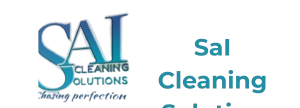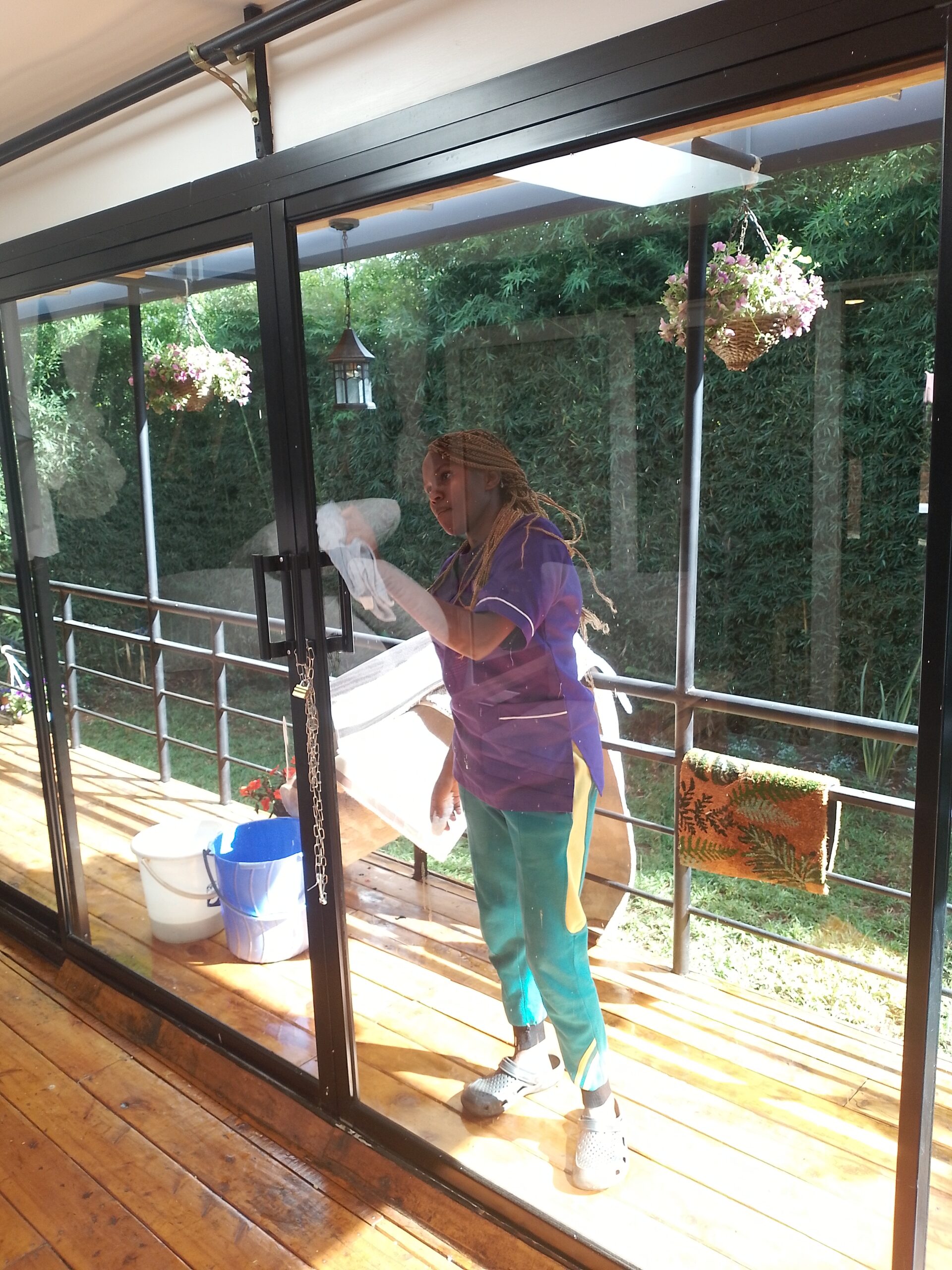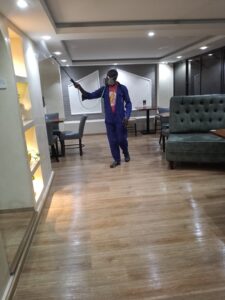The Ultimate Office Cleaning Checklist for Nairobi Businesses: Keep Your Workspace Spotless
Introduction
A clean office is more than just appealing to the eye—it’s essential for productivity, employee health, and creating positive first impressions with clients. In Nairobi’s busy business environment, maintaining cleanliness can be challenging due to dust, traffic pollution, and unpredictable weather patterns. Many business owners struggle to create an effective office cleaning checklist for Nairobi businesses that addresses these unique local challenges.
Whether you run a small startup in Westlands or manage a large corporate office in Upper Hill, having a structured office cleaning checklist for Nairobi businesses helps you maintain consistent cleanliness standards. This guide will walk you through daily, weekly, and monthly cleaning tasks specifically designed for Kenyan workplaces, helping you create a healthier, more productive environment for everyone.
Key Takeaways
- A comprehensive office cleaning checklist for Nairobi businesses should include daily, weekly, and monthly tasks
- Regular cleaning reduces sick days by up to 30% and boosts productivity by creating a healthier workspace
- Different areas of your office require specific cleaning approaches—reception areas need daily attention while storage rooms might need less frequent cleaning
- Professional cleaning services like Sai Cleaning Solution can help maintain consistent cleanliness standards
- Adapting your cleaning schedule for Nairobi’s unique climate challenges (dust, rain seasons) is essential for effective maintenance
- Using environmentally friendly cleaning products helps protect both your staff and the environment
- Follow us on Facebook for cleaning tips and updates
Why Office Cleanliness Matters in Nairobi
Nairobi’s unique environment presents specific challenges for office cleanliness. The city’s location and climate create conditions that make regular cleaning essential:
Health Considerations
According to a 2023 study by the Kenya Medical Research Institute, clean workplaces reduce employee sick days by nearly 30%. This is particularly important in Nairobi where:
- Dust from unpaved roads frequently enters office buildings
- Seasonal changes bring different cleaning challenges
- High-density office areas can spread illnesses quickly if proper cleaning isn’t maintained
Professional Image
For businesses in competitive areas like Upperhill, Westlands, or Kilimani, office cleanliness directly impacts client perceptions. A survey by the Kenya Association of Manufacturers found that 78% of business visitors form opinions about a company within the first 5 minutes—and cleanliness ranks as the second most important factor.
Employee Productivity
Clean workspaces boost productivity. When employees don’t have to worry about dusty surfaces or unpleasant odors, they can focus better on their tasks. The Kenya Productivity Center reports that organized, clean offices show a 15% increase in employee output compared to cluttered, dirty spaces.
Daily Office Cleaning Checklist for Nairobi Businesses
Reception and Entrance Areas
Your reception area creates first impressions. During Nairobi’s dusty seasons, these areas need special attention:
- Sweep and mop entrance floors (particularly important during rainy seasons when mud is tracked in)
- Dust all reception furniture and fixtures
- Empty and clean trash bins
- Wipe down frequently touched surfaces (door handles, reception counter)
- Clean glass doors and windows to remove fingerprints and dust
- Organize magazines and promotional materials
- Vacuum carpets and mats (especially important during dusty season)
Office Workspaces
- Empty all waste bins and replace liners
- Dust and wipe desks, chairs, and computer equipment
- Clean telephones with disinfectant (phones harbor more bacteria than toilet seats!)
- Arrange and tidy communal areas
- Spot-clean any visible stains on carpets
- Clean whiteboards if used that day
- Disinfect high-touch areas like light switches and door handles
Kitchen and Break Areas
- Clean and sanitize all countertops
- Wipe down tables and chairs
- Clean microwave inside and out
- Empty refrigerator of expired food (Friday recommended)
- Wash coffee pots and water dispensers
- Restock paper towels and soap dispensers
- Mop floors, paying special attention to spills
- Take out trash and recyclables
Restrooms
- Clean and disinfect all toilets, urinals, and sinks
- Restock toilet paper, hand soap, and paper towels
- Clean mirrors
- Wipe down all surfaces, including door handles
- Mop floors with disinfectant
- Empty trash bins
- Check and clean air fresheners
Weekly Office Cleaning Checklist for Nairobi Businesses
Deep Cleaning Tasks
- Dust blinds, window sills, and high shelves
- Clean inside of microwave and refrigerator
- Polish wooden furniture
- Vacuum upholstered furniture
- Clean baseboards and corners
- Dust ceiling fans and air vents
- Wipe down walls, especially around light switches
- Deep clean coffee machines
Floor Maintenance
- Deep vacuum all carpeted areas, moving furniture where possible
- Mop hard floors with appropriate cleaners (different for tile, wood, or laminate)
- Spot clean carpet stains
- Buff hard floors if needed
- Clean floor mats and runners
Window and Glass Cleaning
During Nairobi’s dusty seasons, weekly window cleaning becomes essential:
- Clean all interior windows and glass partitions
- Wipe down window sills
- Remove cobwebs from corners
- Clean blinds and curtains as needed
- Wipe smudges from framed pictures and decorations
Monthly Office Cleaning Checklist for Nairobi Businesses
Deep Cleaning
- Shampoo carpets or steam clean
- Strip and wax hard floors
- Clean light fixtures and replace bulbs as needed
- Dust and clean ceiling corners, vents, and hard-to-reach areas
- Clean upholstery and office chairs
- Sanitize trash bins
- Clean inside drawers and cabinets
Maintenance Tasks
- Check for pest issues (common in some Nairobi areas, especially during rainy seasons)
- Inspect plants and clean artificial ones
- Clean exterior windows (hire professionals for high-rises)
- Deep clean restrooms, including grout and hard water deposits
- Clean behind appliances in kitchen areas
- Organize storage areas
- Check and clean air conditioning filters
Seasonal Considerations for Nairobi
Rainy Season Cleaning (March-May, October-December)
During Nairobi’s rainy seasons, special attention should be paid to:
- Entrance mats and floor drying (to prevent slips)
- Dehumidifiers in damp areas
- Checking for leaks around windows
- More frequent carpet cleaning to prevent mold
- Waterproofing exterior entrances
Dry Season Cleaning (January-February, June-September)
During dry, dusty periods:
- Increase dusting frequency
- Keep windows closed during dusty days
- Use air purifiers where possible
- Wipe electronics more frequently (dust can cause overheating)
- Clean air conditioning vents and filters more often
Office Cleaning Equipment Checklist
Having the right tools makes cleaning more efficient. Here’s what every Nairobi office should have:
Basic Cleaning Supplies
- Microfiber cloths (better at trapping dust than regular cloths)
- Brooms and dustpans
- Mops and buckets
- Vacuum cleaner (with upholstery attachments)
- Glass cleaner
- All-purpose cleaner
- Disinfectant spray
- Toilet bowl cleaner
- Paper towels
- Trash bags
- Rubber gloves
- Feather dusters for high areas
Specialized Tools
- Carpet spot cleaner
- Furniture polish
- Extension dusters for high areas
- Squeegees for windows
- Small brushes for detail cleaning
- Floor buffer (for larger offices)
Cleaning Different Office Types in Nairobi
Small Businesses (1-10 Employees)
For small businesses in areas like Ngong Road or Kilimani:
- Assign cleaning duties to team members on rotation
- Focus on reception and client-facing areas
- Consider a professional deep clean monthly
- Store cleaning supplies in an organized, accessible area
- Create a simple daily checklist that takes 15-20 minutes to complete
Medium-Sized Offices (11-50 Employees)
For growing businesses in areas like Westlands or Upper Hill:
- Hire a part-time cleaner for daily tasks
- Create area-specific cleaning checklists
- Consider professional weekly or bi-weekly deep cleaning
- Implement a “clean desk policy” at day’s end
- Have department representatives report cleaning issues
Large Corporate Offices (50+ Employees)
For corporate offices in Nairobi’s business districts:
- Contract with professional cleaning services
- Implement zone cleaning for different departments
- Use cleaning management software to track tasks
- Have dedicated cleaning staff for sensitive areas
- Conduct regular cleaning audits
Environmentally Friendly Cleaning Practices
Kenya is increasingly focused on environmental sustainability. Implement these eco-friendly cleaning practices:
Green Cleaning Products
- Use biodegradable cleaning agents
- Choose products with minimal packaging
- Look for Kenya Bureau of Standards (KEBS) certified eco-friendly products
- Consider natural alternatives like vinegar and baking soda for some tasks
- Avoid products with harsh chemicals that can affect indoor air quality
Sustainable Practices
- Use reusable microfiber cloths instead of paper towels
- Implement recycling stations throughout the office
- Consider water-saving cleaning methods
- Use concentrated products that require less packaging
- Purchase supplies in bulk to reduce packaging waste
Interactive Office Cleanliness Assessment
How clean is your office? Rate your current cleaning practices:
| Area | Poor | Average | Good | Excellent |
|---|---|---|---|---|
| Reception | ||||
| Workspaces | ||||
| Restrooms | ||||
| Kitchen | ||||
| Floors | ||||
| Windows | ||||
| Dusting | ||||
| Waste Management |
Survey Question: What’s your biggest office cleaning challenge in Nairobi?
- [ ] Dust control during dry seasons
- [ ] Managing cleanliness during rainy seasons
- [ ] Finding reliable cleaning staff
- [ ] Balancing cleaning costs with quality
- [ ] Getting employees to maintain cleanliness
- [ ] Other (please share in comments)
Creating an Office Cleaning Schedule
A structured schedule ensures nothing gets missed:
Sample Office Cleaning Schedule Template
Daily (Monday-Friday)
- Morning (before work hours): Restrooms, reception, trash removal
- Mid-day: Quick cleanup of break areas, restroom check
- Evening: Workstations, floors, kitchen, final trash removal
Weekly Tasks Assignment
- Monday: Focus on entrance and reception deep cleaning
- Tuesday: Kitchen deep cleaning
- Wednesday: Meeting rooms and common areas
- Thursday: Executive offices and special areas
- Friday: Storage areas, refrigerator cleaning, weekend preparation
Monthly Deep Cleaning
- First weekend: Carpets and upholstery
- Second weekend: Windows and blinds
- Third weekend: Storage areas and archives
- Fourth weekend: Hard floor maintenance and waxing
Hiring Professional Cleaners in Nairobi
When to Consider Professional Help
- When staff members are spending too much time on cleaning
- For specialized cleaning needs (carpet extraction, window cleaning for tall buildings)
- When consistency is becoming an issue
- During busy business periods
- For post-construction or renovation cleaning
- For after-event cleanup
What to Look for in a Cleaning Service
- Properly registered with relevant Kenyan authorities
- Insured and bonded
- Staff training programs
- References from similar businesses
- Flexible scheduling options
- Clear pricing structure
- Eco-friendly options
- Experience with your building type
- Local to Nairobi (understands local challenges)
Employee Involvement in Office Cleanliness
Creating a culture of cleanliness requires everyone’s participation:
Encouraging Clean Habits
- Implement a “clean desk” policy at the end of each day
- Provide sanitizing wipes for employees to clean their workstations
- Create designated areas for eating to contain messes
- Hold monthly “office organization” days
- Recognize and reward clean departments or areas
- Create simple cleaning checklists for employee areas
Employee Feedback System
- Set up a system for reporting cleaning issues
- Conduct quarterly surveys on office cleanliness
- Create a cleaning suggestion box
- Discuss cleaning in team meetings
- Appoint department “cleanliness champions”
Cleaning Technology and Innovations
The cleaning industry is evolving with new technologies particularly relevant to Nairobi’s environmental challenges:
Modern Cleaning Solutions
- HEPA filter vacuums (particularly useful during Nairobi’s dusty seasons)
- Microfiber technology that requires less water and chemicals
- UV sanitizing wands for electronics and high-touch surfaces
- Steam cleaners that sanitize without chemicals
- Electrostatic sprayers for disinfecting large areas quickly
- Air purifiers to maintain indoor air quality
Cleaning Management Apps
- Digital checklists and task assignment
- Cleaning verification systems
- Inventory management for supplies
- Communication platforms between management and cleaning staff
- Scheduling and reminder systems
Office Cleaning During COVID-19 and Future Pandemics
While COVID-19 restrictions have eased, the lessons learned remain relevant:
Enhanced Cleaning Protocols
- More frequent disinfection of high-touch surfaces
- Hand sanitizing stations throughout the office
- Regular cleaning of shared electronics
- Particular attention to meeting rooms between uses
- Deep cleaning after any reported illness
- Proper ventilation and air circulation
Health and Safety Measures
- Providing proper PPE for cleaning staff
- Training on disinfection procedures
- Documentation of cleaning tasks completed
- Clear communication about cleaning protocols
- Regular updates based on Ministry of Health guidelines
Cost-Saving Cleaning Tips for Nairobi Businesses
Effective cleaning doesn’t have to break the budget:
Budget-Friendly Approaches
- Buy cleaning supplies in bulk
- Train employees on basic cleaning procedures
- Focus professional cleaning on high-impact areas
- Use concentrated products that last longer
- Invest in quality equipment that won’t need frequent replacement
- Implement preventative measures (entrance mats, regular maintenance)
- Consider sharing cleaning services with neighboring businesses
Return on Investment
A clean office provides returns beyond just appearance:
- Reduced sick days and associated costs
- Extended lifespan of office furnishings and equipment
- Improved employee retention (people prefer clean workplaces)
- Enhanced client impressions leading to better business relationships
- Reduced allergens and improved air quality
Conclusion
Maintaining a clean office environment in Nairobi requires attention to detail and a systematic approach. With the right office cleaning checklist for Nairobi businesses, you can create a workspace that impresses clients, keeps employees healthy, and contributes to overall productivity. From daily tasks like emptying trash and wiping surfaces to monthly deep cleaning of carpets and hard floors, each cleaning activity plays a vital role in your office’s appearance and function.
Remember that Nairobi’s unique environment presents specific challenges—from dust during dry seasons to mud and moisture during rainy periods. Adapting your cleaning schedule to these seasonal changes helps maintain consistent cleanliness year-round. Whether you manage the cleaning in-house or hire professionals, having detailed checklists ensures nothing gets overlooked.
A clean office isn’t just about appearances—it’s an investment in your business’s reputation, your employees’ wellbeing, and your company’s productivity. By implementing the office cleaning checklist for Nairobi businesses outlined in this guide, you’re taking an important step toward creating a healthier, more efficient workplace.




